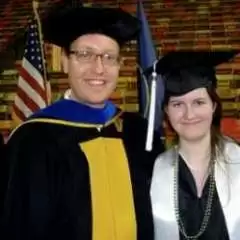-
Welcome to Celiac.com!
You have found your celiac tribe! Join us and ask questions in our forum, share your story, and connect with others.
-
Celiac.com Sponsor (A1):
Celiac.com Sponsor (A1-M):
-
Get Celiac.com Updates:Support Our Content
Celiac but my body still losing muscle or tissue? Why?!
-
Get Celiac.com Updates:Support Celiac.com:
-
Celiac.com Sponsor (A17):
Celiac.com Sponsor (A17):
Celiac.com Sponsors (A17-M):
-
Recent Activity
-
- Murilo P replied to Murilo P's topic in Celiac Disease Pre-Diagnosis, Testing & Symptoms45
DR1-DQ5 neurological symptoms
It has been a while and I would like to post an update. The hallucinations are completely gone. Thanks to one bottle of B1 as benfotiamine and one of B3 as niacin, both taken together. I will buy more. The other symptoms are still being treated. Now I can already affirm that the symptoms are part of Borderline Personality Disorder. Yet I do have... -
- Jsingh posted a topic in Related Issues & Disorders0
Receommendations for kids multivitamins
Hi, My six year old has been complaining of tingling in the legs off late. This used to be pretty common thing with her pre-diagnosis and a couple of weeks after the diagnosis as well. And now it is back again. I am not sure if it's a glutening symptom, or she could be deficient in something. I got her Pure Encapsulations' multivitamin capsule, which... -
- Dora77 replied to Dora77's topic in Post Diagnosis, Recovery & Treatment of Celiac Disease2
Energy drink can has stains - potential gluten?
It wasnt really eye catching, but they were small stains which looked like dried out liquid. I dont know if it was normal or shouldve been just completely clean. But if someone didnt pay attention, it wouldnt be noticeable. -
- RMJ replied to Dora77's topic in Post Diagnosis, Recovery & Treatment of Celiac Disease2
Energy drink can has stains - potential gluten?
If there were stains or particles on a drink can in an area that would either contact the drink or my lips, I would wash that can whether or not I had celiac disease. -
- Bebygirl01 replied to Bebygirl01's topic in Food Intolerance & Leaky Gut3
Not Just Wheat, Barley and Rye Glutens that make us sick
You are on the money, but I should also add that Italian, French and other countries research shows exactly what I have said. Our FDA is behind the ball when it comes to this research and I am hopeful that Kennedy can straighten this out soon, albeit he is giving the food companies too long to just remove food dyes from our foods when in fact they have to...
-





Recommended Posts
Create an account or sign in to comment
You need to be a member in order to leave a comment
Create an account
Sign up for a new account in our community. It's easy!
Register a new accountSign in
Already have an account? Sign in here.
Sign In Now